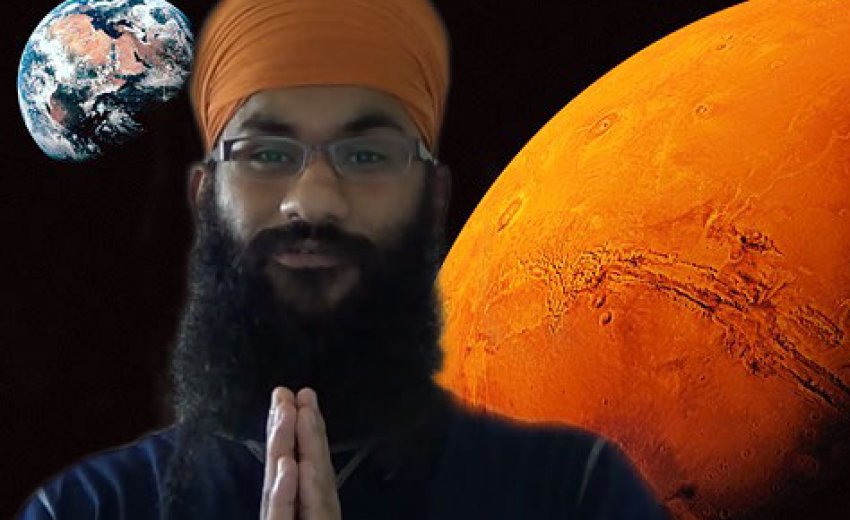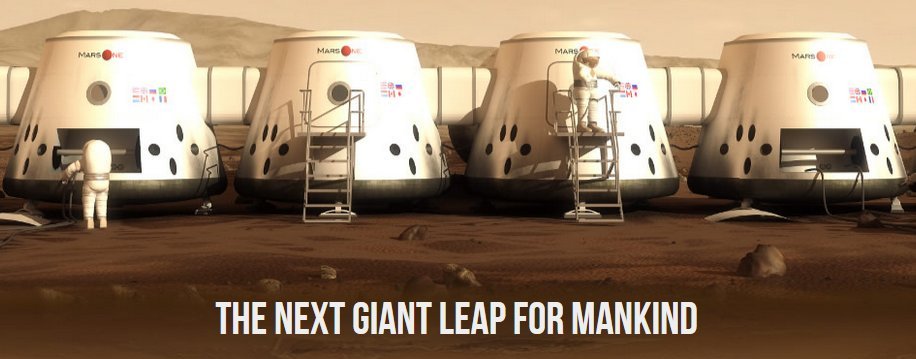
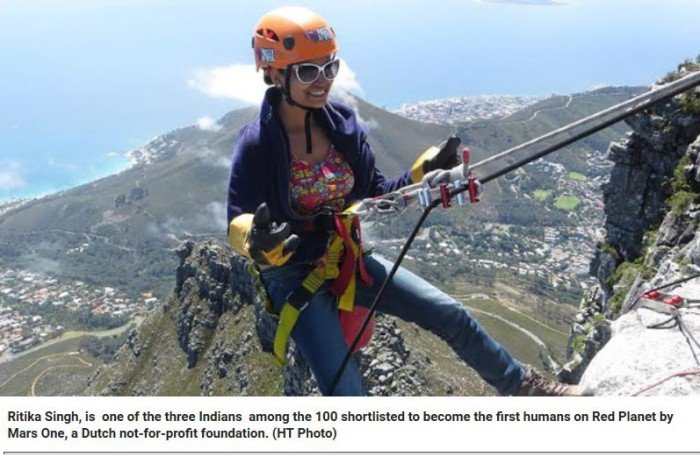
Feb 16, 2015: Three Indians have made it to a shortlist of 100 people worldwide in the race to become the first human beings on Mars as part of a one-way mission to establish a colony on the Red Planet.
The trio beat competition from over 200,000 applicants to enter the last leg of an ambitious private project that aims to send four people to Mars every two years, starting 2024.
The project, run by a Netherlands-based not-for-profit foundation Mars One, plans to select 24 people, train them on surviving the harsh conditions of outer space, send them to Mars in groups of four — but not bring them back.
Two of the three Indians are women, including 19-year-old Shradha Prasad from Kerala and 29-year-old Ritika Singh from Delhi.
"I applied because I have been adventurous since childhood and like to take on challenges. What can be a better challenge than this? We all take a two-way ticket. To get a one way ticket to Mars will be a lifetime experience," said Singh, who currently works in Dubai.
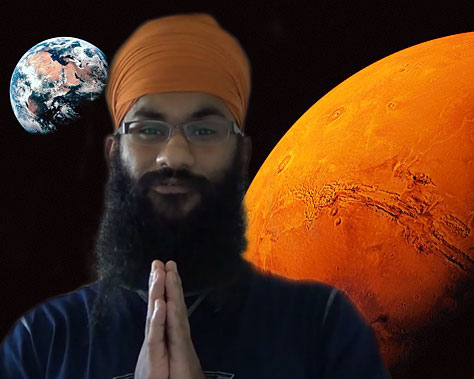 The third Indian, 29-year-old Taranjeet Singh Bhatia, lives in Orlando.
The third Indian, 29-year-old Taranjeet Singh Bhatia, lives in Orlando.
"Space science has been my passion and I love taking risks," said Prasad, adding that she wouldn't let anything mar her dream to go to Mars.
If finally selected, all three will not have to pay a penny and receive a salary from Mars One. The cost of putting the first four people on Mars is estimated at $6 billion and the first unmanned mission is slated for 2018.
It wasn't easy for some of the Indians to convince their families. "But I made them understand this is my dream and this is what will make me happy. Now they are fine," said Singh.
The final selection round will be aired on TV and internet across the globe. Selected candidates will participate in group challenges that demonstrate their suitability to become part of the project.
"The large cut in candidates is an important step towards finding out who has the right stuff to go to Mars," said Bas Lansdorp, co-founder and CEO of Mars One.
"These aspiring Martians provide the world with a glimpse into who the modern day explorers will be," he added.
The Mars One selection committee will create an international group of four candidates, who would have to demonstrate their ability to live in harsh conditions and work under difficult circumstances. They would be trained in a replica of the Mars outpost. Up to six groups of four will become full-time employees of the Mars One astronaut corps.
|
|
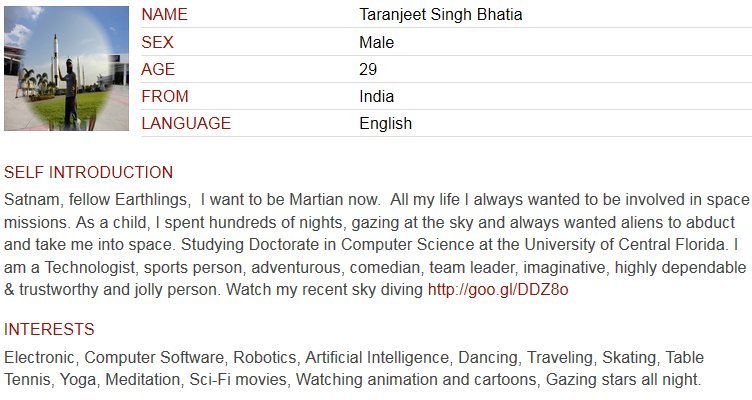 |
